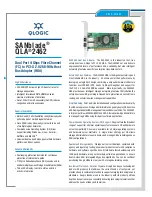
Functions
INSYS ISDN TA 4.0
9.13
Sending Messages via Data Connection, SMS or E-
Mail
The INSYS ISDN TA 4.0 monitors its alarm inputs to send a message in case of an
event. It makes three attempts to send a message regardless of the type of
transmission. If all attempts fail, no further attempt will be made. Trigger an alarm
signal again in this case.
The sent messages are composed by the group message and the according alarm
text 1 or alarm text 2. It is thus possible to specify the system with the collective
message and customize the alarm text assigned to the respective input.
No alarm is active in default setting.
9.13.1
Sending Messages via Data Connection
The INSYS ISDN TA 4.0 can establish a data connection to a remote terminal, e.g.
an INSYS ISDN TA or another ISDN modem to send messages. The INSYS ISDN TA
4.0 transmits the configured alarm text via the data connection to the other device
in this case.
Configuration with HSComm
In order to enable the alarm, check on the "Alarm inputs" tab the
checkmark (Figure 8, page 37, position 8) for the desired alarm input.
Select in the list field "Type of connection" (Figure 8, page 37, position 2)
"Data connection, hold the line" or "hang up connection".
It is not necessary to enter a Service center number when sending
messages via data connection.
Enter the Recipient phone number into the entry field "Recipient
number" (Figure 8, page 37, position 5).
In order to specify a general text (a "collective message"), which
precedes all messages, enter your text into the text field "Collective
message" (Figure 8, page 37, position 6).
In order to specify the individual message for the input, enter the
message text into the text field "Individual message" (Figure 8, page 37,
position 4 for alarm input 1 and position 3 for alarm input 2).
Enter your own phone number (MSN) on the "Modem functions" tab
(Figure 7, page 35, position 13). The entry is without prefix. When
operating at a PABX, you must only enter the extension number.
In order to disable the alarm, uncheck on the "Alarm inputs" tab the
checkmark (Figure 8, page 37, position 8) for the desired alarm input.
62
















































